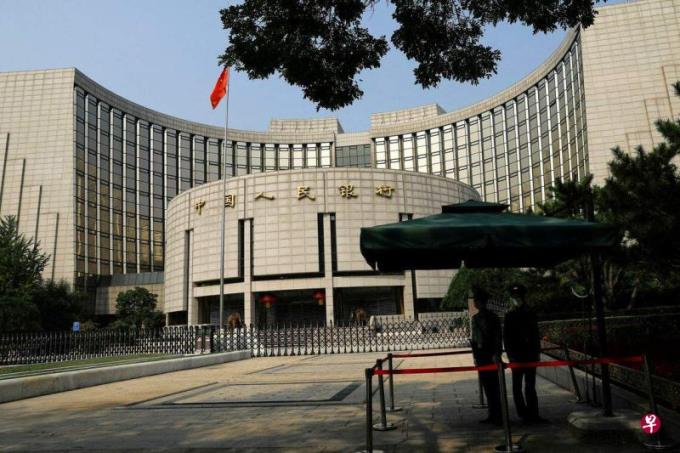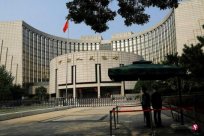
In order to expand credit and boost the real economy, the People's Bank of China has lowered the loan interest rate on Monday (August 21), but the scope and amplitude of the decline are less than expected. It shows that under the pressure of the depreciation of the renminbi and the outflow of capital, the Chinese government passed the currency through currencyThe more limited space for policies to stimulate the economy.
The People's Bank of China issued a announcement on Monday (August 21) to reduce the one -year loan market quotation interest rate (LPR) to 3.45%; the five -year or above remained unchanged at 4.2%.
LPR is a reference for the loan interest rate of commercial banks, which are divided into two periods and five years.Most new loans are based on one -year interest rates, and five -year -old loans are the main references of mortgage interest rates.
Due to the downturn in the real estate market and weak consumption, the market expects earlier, officials will increase interest rates and stimulate the weak economy.Some interviewed analysts believe that the restriction of the restrictions on the decline in the restrictions of the People's Bank of China is to worry about the continued depreciation of the RMB.
A senior Chinese economic analyst who is unwilling to be named, in an interview with the United Morning Post, pointed out that the decline in the RMB exchange rate means the decline in the asset value of the RMB price, which will cause investors to sell RMB assets.
However, the central bank's caution on interest rates has not prevented the RMB from further down.The RMB exchange rate fell to the low of RMB 7.33 against 1 US dollars on Monday on Monday.Reuters pointed out that since this year, the exchange rate of the RMB against the US dollar has fallen by nearly 6 %, and it is one of the worst currencies in Asia.
Because the interest rate cut is not expected, the capital market continues to be sluggish on Monday.The CSI 300 Index and the Hang Seng China Enterprise Index fell 1.44 % and 1.9 % on Monday, respectively, the lowest point in the year.At the same time, the northern direction of the north -direction of Mainland China stocks through the Hong Kong Exchange sold 6.4 billion yuan (S $ 1.933.57 million) throughout the day, which is the 11th consecutive trading day, which means that international investors continue to sellChinese assets.
The five -year LPR of the People's Bank of China maintained as the main reference of the main loan interest rate also allowed the original expectation of the official measures to boost market disappointment in the real estate industry. The stock prices of major real estate companies such as Longhu Group and Poly Development Holdings fellEssence
Analysis: The banking industry has restricted monetary policy space
The People's Bank of China, the General Administration of Finance Supervision, and the China Securities Regulatory Commission jointly held a meeting on Friday (August 18) to emphasize that financial support for the real economy is enough, and it is required that major financial institutions should take the initiative to take the initiative to increase loansEstablishment.
The central bank also lowered 15 basis points to 2.5%last week.This interest rate is the guidance of LPR, and MLF's lower loss foreshadows the lowering of LPR.But what surprised the market was that the central bank had only adjusted the one -year LPR this time and maintained a five -year interest rate.
In this regard, the analysis pointed out that in the context of China's support for the real economy and continuously reducing policy interest rates, bank yields have declined rapidEssence
This also shows that after the continuous easing of the three -year crown disease epidemic, China's monetary policy continues to release liquidity and limited economic space.The Chinese government is in the dilemma of increasing borrowing and maintaining financial stability through interest rate cuts.
In response to the financing issues facing the real estate industry, observers predict that the central bank of China may choose to use "window guidance" in the next step, that is, to guide commercial banks to reduce the interest rate of stock loan in stocks through persuasion and suggestions.
The central bank also has a very likely reduction of deposit interest rates to stimulate consumption and stabilize bank returns.



